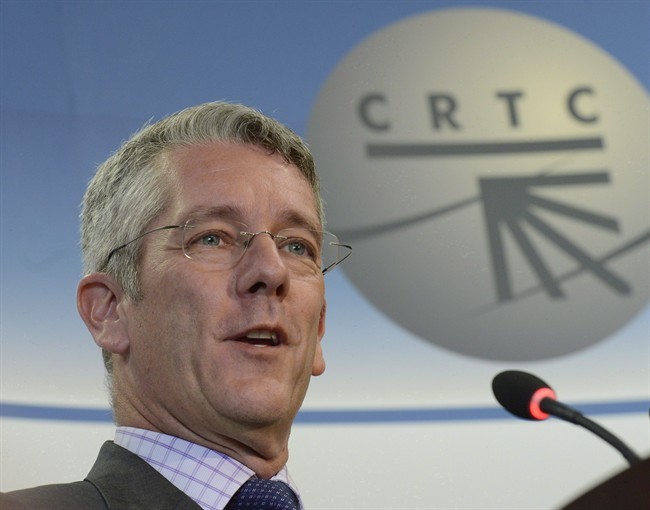TORONTO – The head of the CRTC says the agency is exploring a range of new investigative tools, including international operations to catch rogue telemarketers who operate outside of Canada.

“There are few jobs, few sectors and few aspects of our lives that remain untouched by digital technologies. Therefore, the integrity of the system must be continually maintained and enhanced,” CRTC chairman Jean-Pierre Blais told the Economic Club of Canada in a Thursday morning speech.
“It’s our job to make sure citizens can enjoy peace and quiet in their homes and a more secure online world,” he said.
“This means making sure the telephone calls they receive are from legitimate telemarketers who follow the rules. And that they can open their email without having their identity or intellectual property stolen.”
READ MORE: Canadians still cutting phone service — but numbers are slowing
As an example of new investigative tools, Blais said the CRTC and its allies in other countries will use special phone numbers to detect calls by unscrupulous sales organizations that don’t abide by Canada’s telemarketing rules.
He says the federal regulator is also working with businesses on a system that would allow Canadians to easily forward information about suspicious calls for followup investigations.
The speech comes a day after the Canadian Radio-television and Telecommunications Commission revised rules for the national system that was set up in 2008 to prevent unwanted phone calls from telemarketers.
The CRTC said Wednesday that Canadians will no longer be required to register their numbers every five years to keep them active on the list – despite industry opposition to permanent registrations.
There are currently about 12 million numbers registered on the national do-not-call list. The federal regulator says about 1,200 are added daily – about 400,000 a year.

Comments